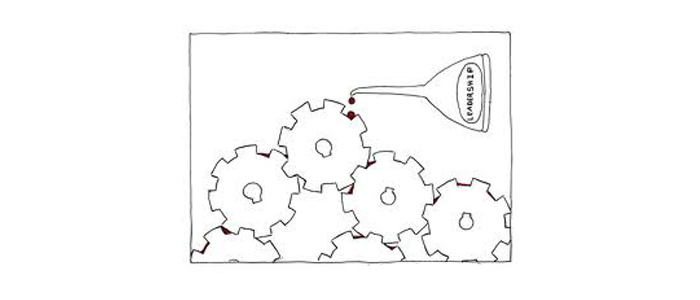We will all have had some personal experience of following a ‘leader’. At a very early age our ‘leader’ may have been the primary school teacher who inspired us (or terrified us). Later in life it may be the CEO who runs the organisation where we work, or the politicians we elect to run our country. We should remember though, that without ‘followers’ a leader is just a lone voice, which is why it’s so important that we choose the leaders with the best qualities. If we choose to do this, then we have a positive impact on the way our organisations and our society are run.
The following descriptions of leaders might apply to anyone in any position in any organisation. Attitude does not depend on how high up the organisation you are. However, when these attitudes are combined with positions of authority or responsibility they have a major impact on others and on organisations.
The Ruler
Rulers are relatively rare. We may never meet one personally but it’s still likely that they will have some sort of impact on us. Rulers can be very effective at getting things done and can lead organisations to significant success. However, they believe that they have a right to positions of authority and that those positions exist largely to serve their ambition. A Ruler (sometimes unconsciously) will not really be aware that they are making a choice to prioritise their own agenda. They will see it as their natural prerogative and as a trade off for their contribution.
The downside to Rulers is that they are unlikely to count the human cost or the cost to the future. Their success is often temporary, and it’s likely that a substantial cost will have to be paid at some point. The fall out from the financial crisis is a recent example of this.
The Boss
Bosses are a common leadership type. Typically they will have climbed up through the ranks and worked hard at doing toeing the party line to get where they are. Having got there, Bosses can be insecure and may have imposter syndrome. Like Rulers their own agenda will feature strongly in their decision making criteria and consequently they may be cautious about taking risks. In his book “On the psychology of military incompetence” Norman F Dixon describes a time when Bosses were the norm in the military. His conclusion is that if you promote for obedience, the risk is you get Bosses who lack the ability to think for themselves and that is never good at the top of an organisation.
The Authentic
Authentics will often be under appreciated and in more hierarchical or political organisations they are likely to be regarded as weak and ineffective, compared to Rulers and Bosses. However, those in their team will probably love working for them. This can also make them look like a threat to Bosses in particular. Their need to enrol and include everyone before starting a change project can look slow, but is more effective in the long term. Authentics are confident and secure in their own identity and they enable and empower those around them. They see themselves in service to their team and to the organisation as a whole.
The Manager
Managers have usually been promoted because of their technical competence but they lack the training (or the self driven learning) so far, to become Authentic Leaders. They are confident in their technical strength and can play to that if allowed, but lack confidence in more strategic matters. The direction managers take may depend on their role model. For example a Boss might turn them into a Boss or convince them to remain a manager. Managers will often want to do the best for their people but will always be constrained or enabled by the nature of the hierarchy above them and they are unlikely to challenge them.
In terms of leadership development, organisations that want to be successful should avoid promoting potential Rulers or Bosses without significant training. Once in charge, Rulers and Bosses will shape a culture to their own ends rather than the greater purpose of the business. They will also make it more difficult for Authentics to shine and will steer ambitious Managers in the wrong direction.
Most organisations place the strongest emphasis on results as the key criteria for promotion. Results are important but are not enough on their own. Rulers and Bosses can be very effective at getting results – but often at an unsustainable cost in the long term. Understanding these types of leaders plays a key part in developing a healthy culture in an organisation.
With thanks to Neil Crofts for the 4 leadership types.
